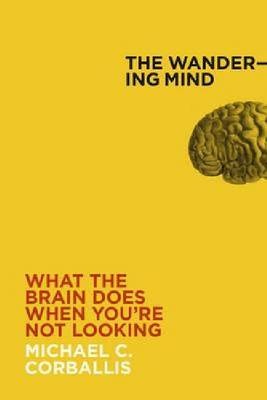 As often as I stop to think, then forget to start again, I am also plagued by bouts of my mind wandering off unattended and delivering all sorts of random thoughts that I then share with the world.
As often as I stop to think, then forget to start again, I am also plagued by bouts of my mind wandering off unattended and delivering all sorts of random thoughts that I then share with the world.
This is generally not a good thing: it is important to have some sort of filter system between the brain and the mouth, so you don’t over-share in an overly honest kind of way. Unless you are Prince Philip, in which case embrace that lack of filter and share away.
Cognitive psychologist Michael Corballis has made his living in the study of the human brain, and in this book he takes a look at just what the brain gets up to when we’re not looking.
In his earlier book 21 Short Walks Around the Human Brain, Corballis took us on a short guided tour of what we have learned about this most complex of human organs over the past 50 years or so, using examples from behavioural experiments, cognitive therapy and a spot of Darwinian evolution.
This time around, he takes us on a journey to learn about our brain on auto-pilot. Forget intellect, forget emotion, this is all about what we do without thought or planning, where our minds go when they are goofing off.
Have you ever wondered what rats dream about? Why we humans are so enamoured with fiction? And what is it that actually drives our creativity?
Corballis takes the work of his earlier book on a much longer walk this time, taking a quirky look at the regions of our brains where dreams and religion, fiction and fantasy lurk.
This is a book that in the wrong hands, could have been a bore-fest. Luckily for us, Corballis is every bit as witty as he is brainy, so we end up with a beautiful blend of science fact and geeky wisdom, with relatable humour.
